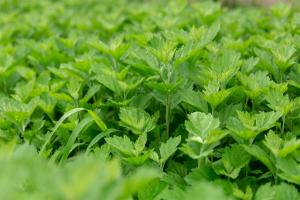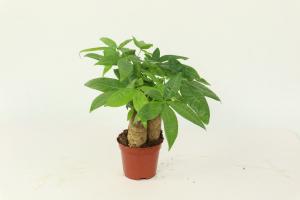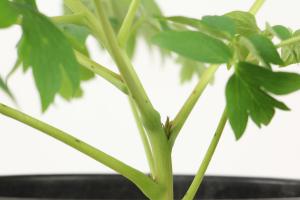Do Newly Planted Trees Lose Their Leaves?
During the fall season, a common question among gardeners and homeowners is whether newly planted trees will lose their leaves. Many people assume that newly planted trees will not lose their leaves or that the leaves will stay intact for the entire season. However, this assumption may not always be true, and it is essential to understand the reasons why newly planted trees may lose their leaves.
Factors That Influence Leaf Loss in Newly Planted Trees
Newly planted trees are susceptible to various factors that may lead to leaf loss. These factors include:
Transplant Shock: When trees are transplanted, they may experience shock as they adjust to their new environment. This shock can cause leaves to fall off, and the tree may struggle to produce new leaves.
Inadequate Watering: Newly planted trees require consistent watering to establish their root system and sustain their leaves. If the trees are not watered enough or are overwatered, their leaves may become dry and fall off.
Incorrect Pruning: Incorrect pruning can damage the tree and cause leaf loss. If too much of the tree is pruned, the tree may not be able to produce enough leaves to survive.
Lack of Nutrients: Newly planted trees need sufficient nutrients to produce leaves and grow. If the soil lacks essential nutrients, the tree may lose its leaves and struggle to grow.
Disease or Pest Infestation: Trees that are newly planted may be susceptible to disease or pest infestation that can cause leaf loss.
When Can Newly Planted Trees Expect to Lose Leaves?
Most trees will lose their leaves in the fall season due to the natural aging process. However, newly planted trees may lose their leaves earlier than expected due to the factors mentioned above. In general, if a newly planted tree loses its leaves within the first few weeks or months, it is likely due to transplant shock or inadequate watering. If the tree loses its leaves later in the growing season, it may be due to nutrient deficiency, disease, or pest infestation.
How to Prevent Leaf Loss in Newly Planted Trees
To prevent leaf loss in newly planted trees, it is essential to take the necessary steps to prevent the factors that may cause it. These steps include:
Proper Watering: Newly planted trees require consistent watering to establish their root system and sustain their leaves. It is essential to water the trees regularly and ensure that the soil is moist but not water-logged.
Correct Pruning: Pruning should be done correctly to avoid damaging the tree and causing leaf loss. It is important to prune only what is necessary and avoid over-pruning.
Applying Nutrients: To prevent nutrient deficiency, it is essential to apply fertilizer to the soil around the tree. This will provide the tree with the essential nutrients it needs to produce leaves and grow.
Identifying and Treating Disease or Pest Infestation: If a tree is infested with pests or suffering from a disease, it is essential to identify the problem and treat it as soon as possible. This will prevent further damage to the tree and prevent the loss of its leaves.
Providing Shade: If a newly planted tree is exposed to direct sunlight for extended periods, it may lose its leaves. Providing shade for the tree can help prevent this from happening.
Conclusion
Newly planted trees may lose their leaves due to various factors such as transplant shock, inadequate watering, incorrect pruning, nutrient deficiency, disease, or pest infestation. It is essential to take the necessary steps to prevent leaf loss and ensure that the tree grows correctly. Consistent watering, proper pruning, applying nutrients, identifying and treating disease or pest infestation, and providing shade can help prevent leaf loss in newly planted trees.

 how many times do yo...
how many times do yo... how many planted tre...
how many planted tre... how many pine trees ...
how many pine trees ... how many pecan trees...
how many pecan trees... how many plants comp...
how many plants comp... how many plants can ...
how many plants can ... how many plants and ...
how many plants and ... how many pepper plan...
how many pepper plan...






























